Tankless vs Tank Water Heater: Which is Right for Tacoma Homeowner?
Are you in the process of deciding which type of water heater is best for your home? Tankless and tank water heaters are both popular options, but it’s important to decide on the right one for your individual needs. In this article, we will provide an overview of each type of heating system and discuss the advantages and disadvantages of choosing either a tank or a tankless water heater. We'll also cover key factors like cost efficiency, installation requirements, maintenance needs, longevity and more, so that you can make an informed decision about which type is better for you. With our guidance, making this critical choice couldn't be easier.

What is a storage tank water heater and how does it work?
A storage tank water heater can be found in many homes and businesses. As the name suggests, this type of water heater relies on a storage tank to hold and heat water until it is needed. When a faucet is turned on, hot water is drawn from the tank and delivered to where it is needed. The tank is insulated to prevent heat loss, and heating elements or burners heat the water inside the tank to the desired temperature. While newer technologies, such as tankless water heaters, have gained popularity in recent years, the tried and true storage tank water heater remains a reliable and cost-effective choice for many people.

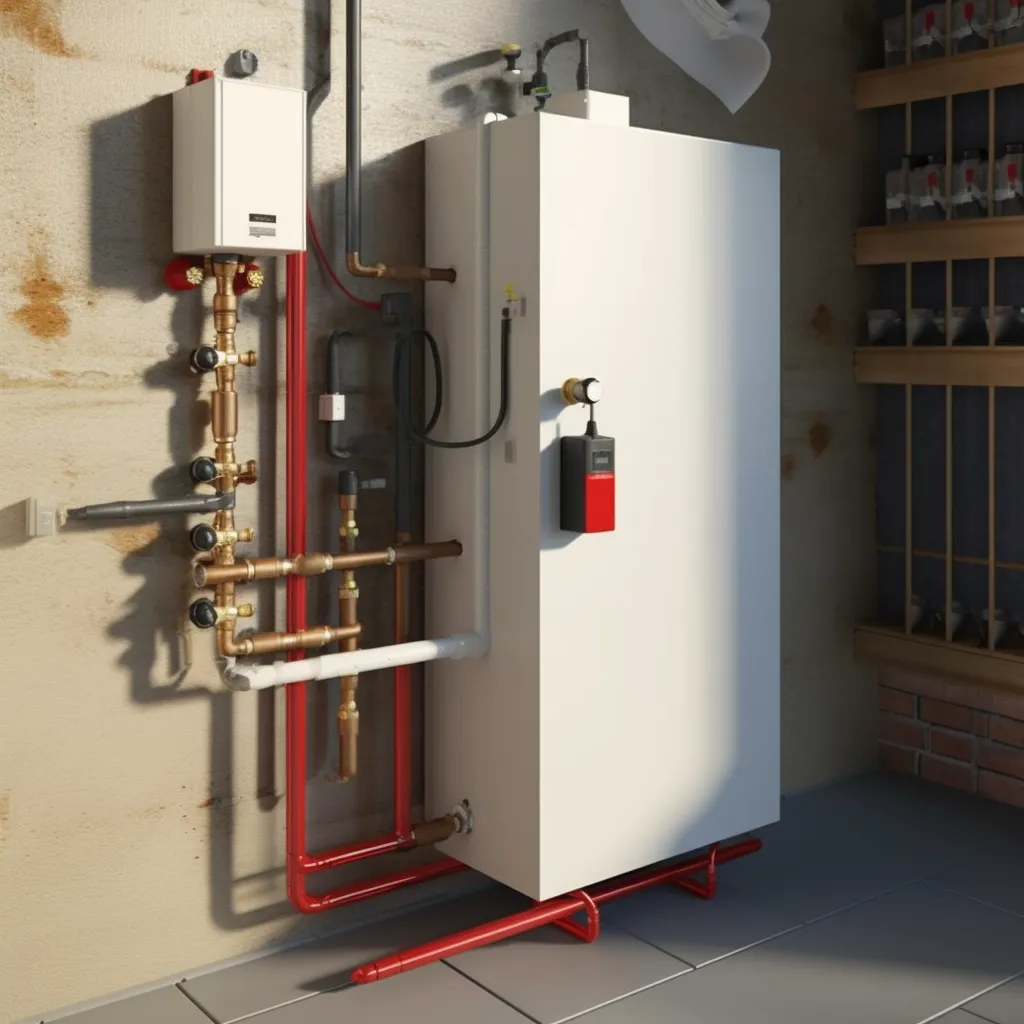
What are the advantages of a tank water heater?
Tank water heaters offer several advantages:
Cost: Tank water heaters are generally less expensive to purchase and install than tankless models.
Capacity: Tank water heaters can generally store more hot water than tankless models, so you have a larger supply of hot water available for use.
Reliability: Tank water heaters are more reliable and less prone to malfunctions than tankless models.
Maintenance: Tank water heaters generally require less maintenance than tankless models, which can help you save money on repair costs.
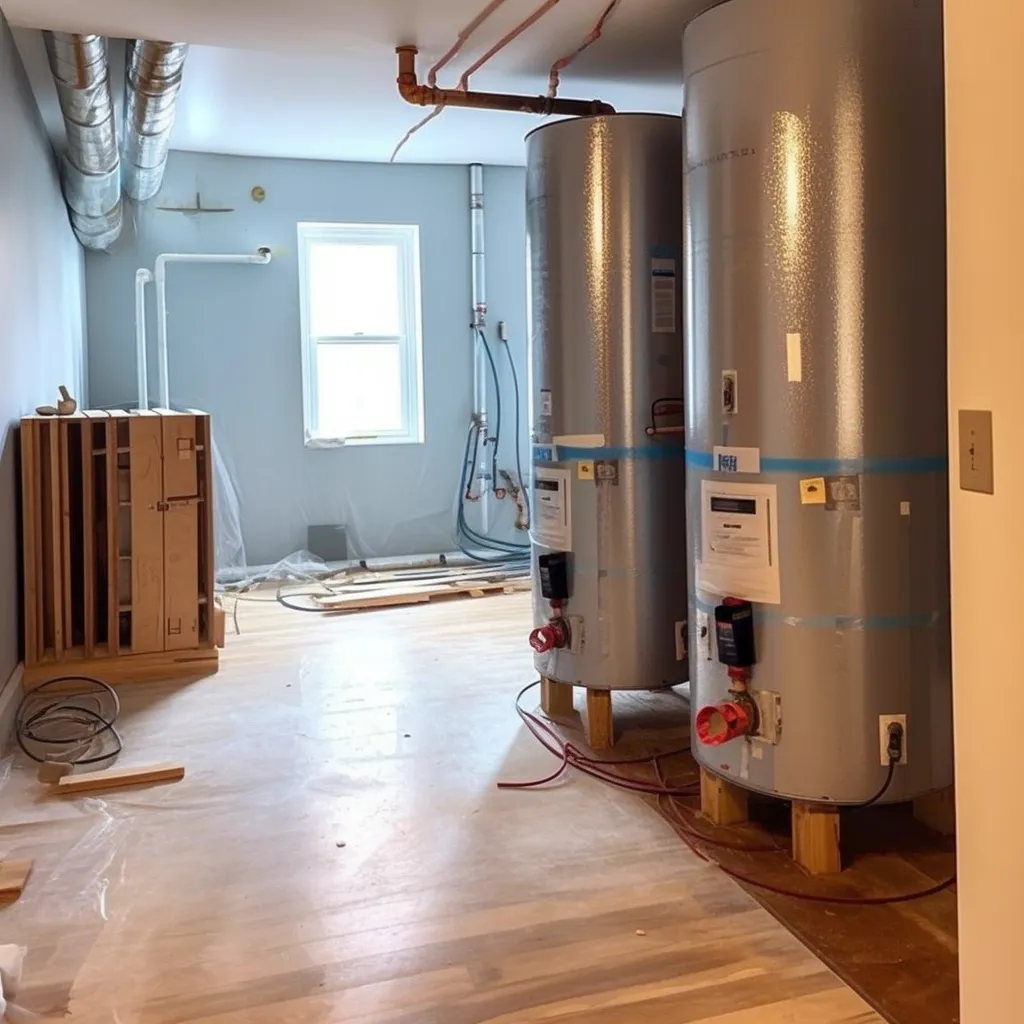
What are the disadvantages of a tank water heater?
Tank water heaters do come with several disadvantages:
Space requirements: Tank water heaters require more space than tankless models, so they are not ideal for homes with limited available space.
Energy efficiency: Older tank water heaters tend to be less energy efficient than newer models, which can result in higher utility bills.
Limited life span: Tank water heaters have a shorter lifespan than tankless models, typically lasting 8-12 years compared to 15-20 years for tankless systems.
Inconvenient if house runs out of hot water: if the tank runs out of hot water, it can take several hours to reheat, which can be inconvenient for households with high hot water demands.

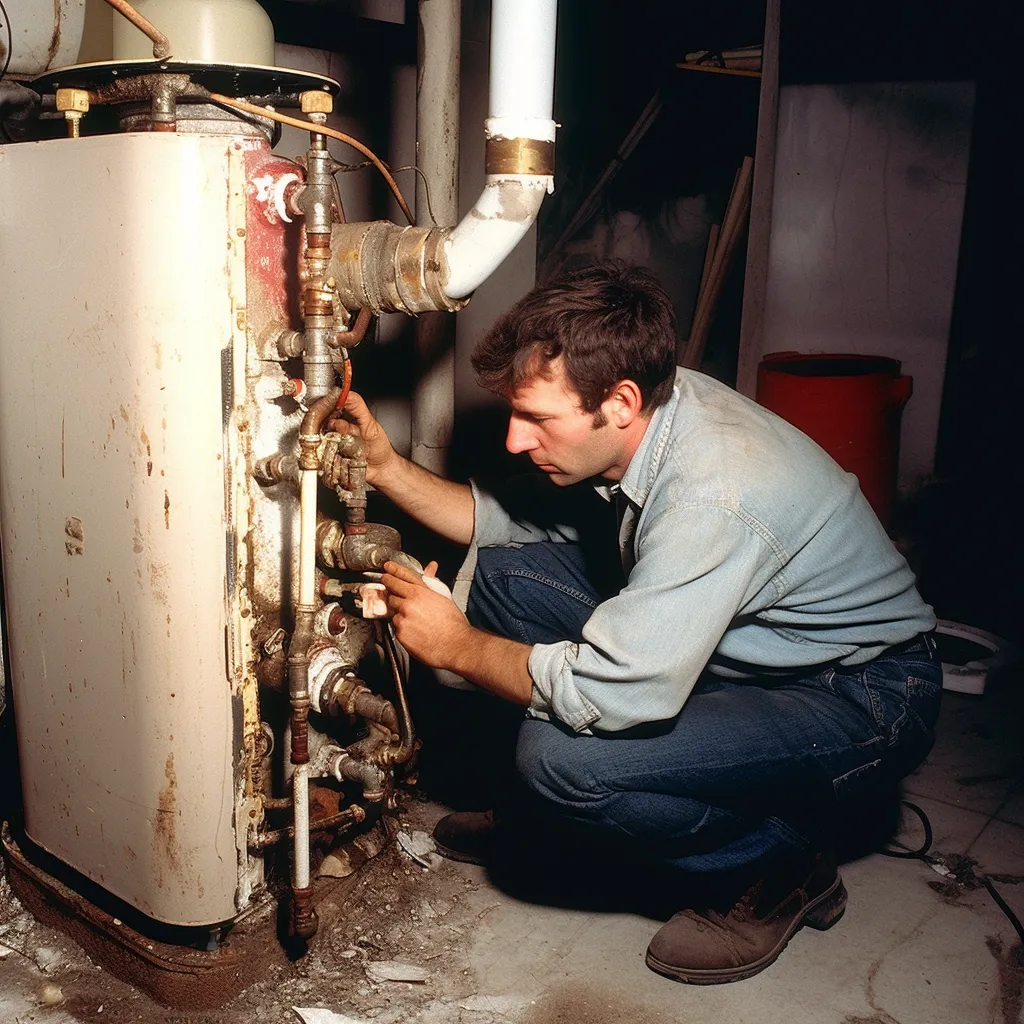
What is a tankless water heater and how does it work?
A tankless water heater heats the water without storing it in a tank. Instead, it heats the water as it flows through the unit. This advanced technology can provide instant hot water on demand without the need for a bulky storage tank. When you turn on the hot water tap, the cold water enters the unit and flows over a heat exchanger. The heat exchanger warms the water to the desired temperature before it exits the unit and travels to your faucet or showerhead.
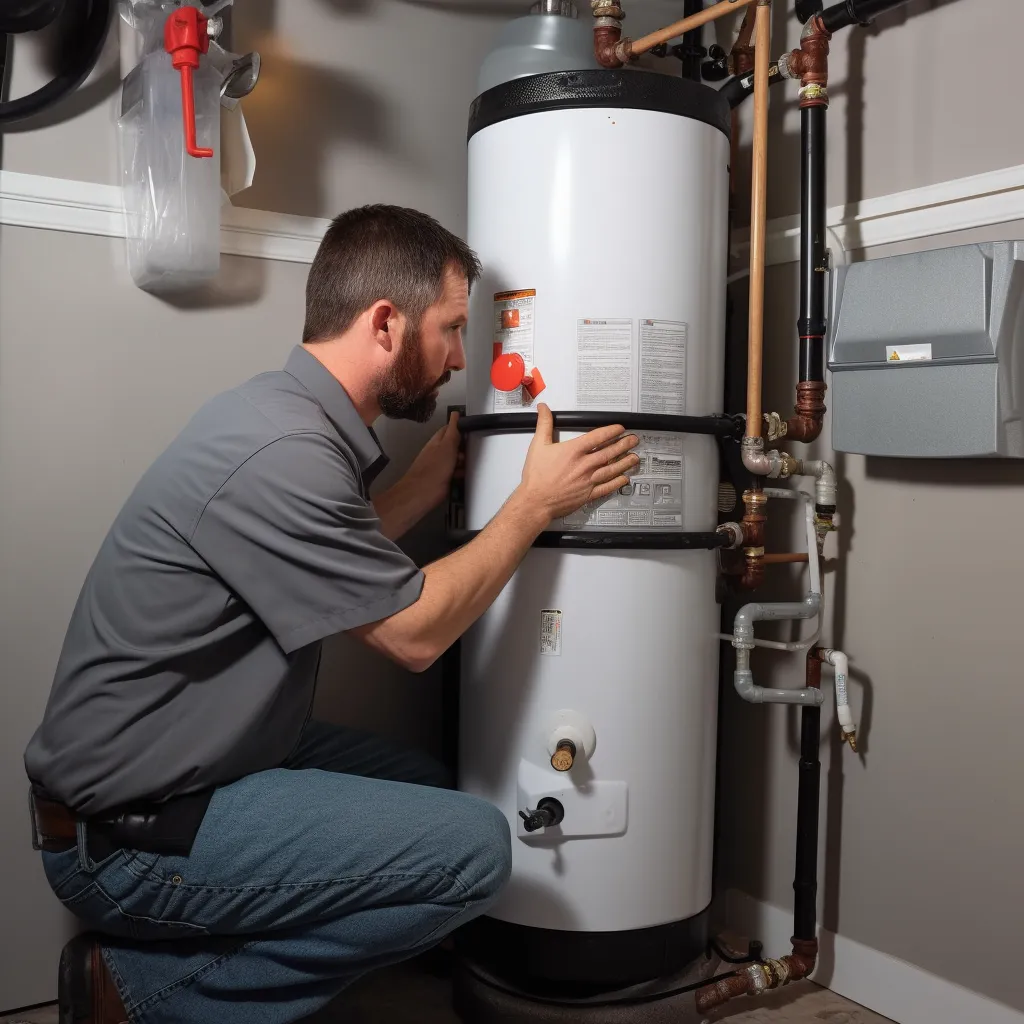
What are the advantages of a tankless water heater?
Tankless water heaters are quickly becoming the preferred choice for homeowners across the country, thanks to their numerous advantages:
Energy efficiency: Tankless water heaters are much more energy efficient than traditional tank models, resulting in lower utility bills over time.
Unlimited hot water supply: Since there is no storage tank to deplete the hot water supply, a tankless system can provide unlimited amounts of hot water on demand.
Space savings: Tankless systems are much smaller than tank models, making them ideal for homes with limited available space.
Longer lifespan: Tankless systems typically last 15-20 years, compared to 8-12 years for traditional tank water heaters.

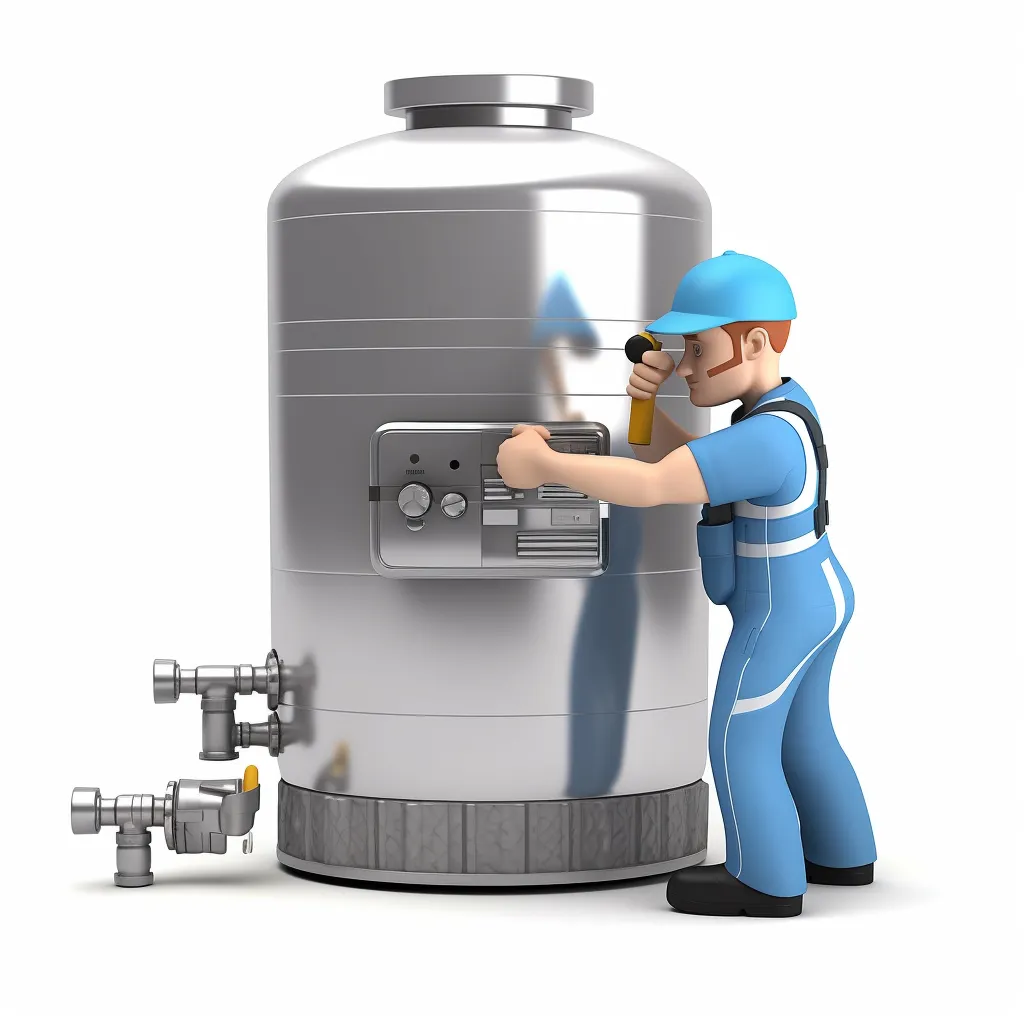
What are the disadvantages of a tankless water heater?
Tankless water heaters come with a few disadvantages:
Initial cost: Tankless systems tend to be more expensive to purchase and install than tank models.
Maintenance costs: Tankless systems require more regular maintenance than traditional tank water heaters, which can drive up repair costs over time.
Flow rate limitation: High flow rates may reduce the efficiency of a tankless system, so it is important to size the unit properly for your home’s needs.
Limited temperature control: Some tankless systems may not be able to keep up with high demand, resulting in a limited range of temperatures available at any given time.
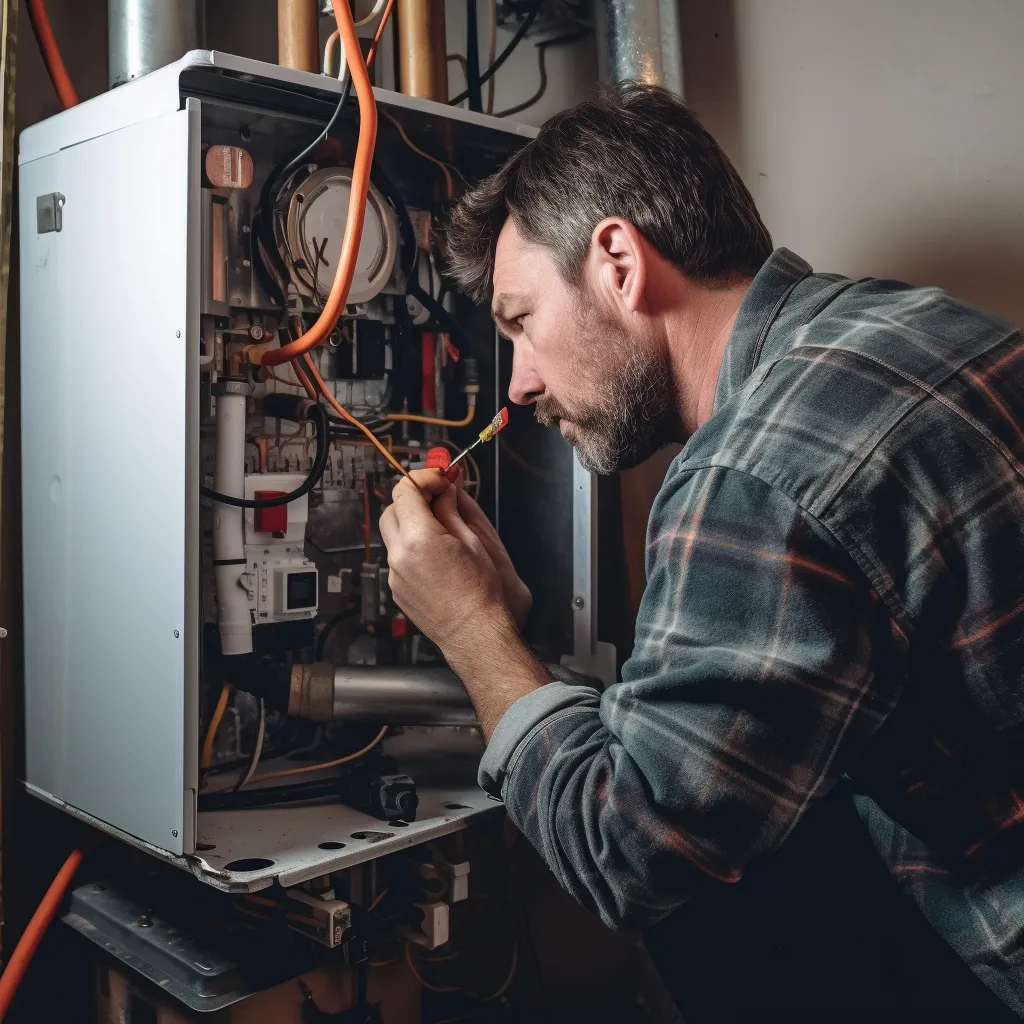
How energy-efficient are storage tank water heaters?
Storage tank water heaters can be quite energy-intensive. These units continually heat and store water, even when it's not being used, which can be unnecessary and wasteful. However, modern water heaters are much more efficient than their predecessors. They are designed to use less energy, have better insulation, and feature improved heating elements. So, while these water heaters may not be the most energy-efficient option available, they are still an affordable and reliable choice for many households.

How energy-efficient are tankless
water heaters?
Tankless water heaters are popular for their ability to save energy and reduce utility bills. But just how energy-efficient are they? According to experts, tankless water heaters can be up to 34% more energy-efficient than traditional tank-based water heaters. This is because tankless systems only heat water on demand, rather than continuously heating a large tank of water. As a result, they don't have to work as hard to maintain a constant temperature. Most tankless water heaters also have a longer lifespan than traditional ones, which means they can save even more energy in the long run.
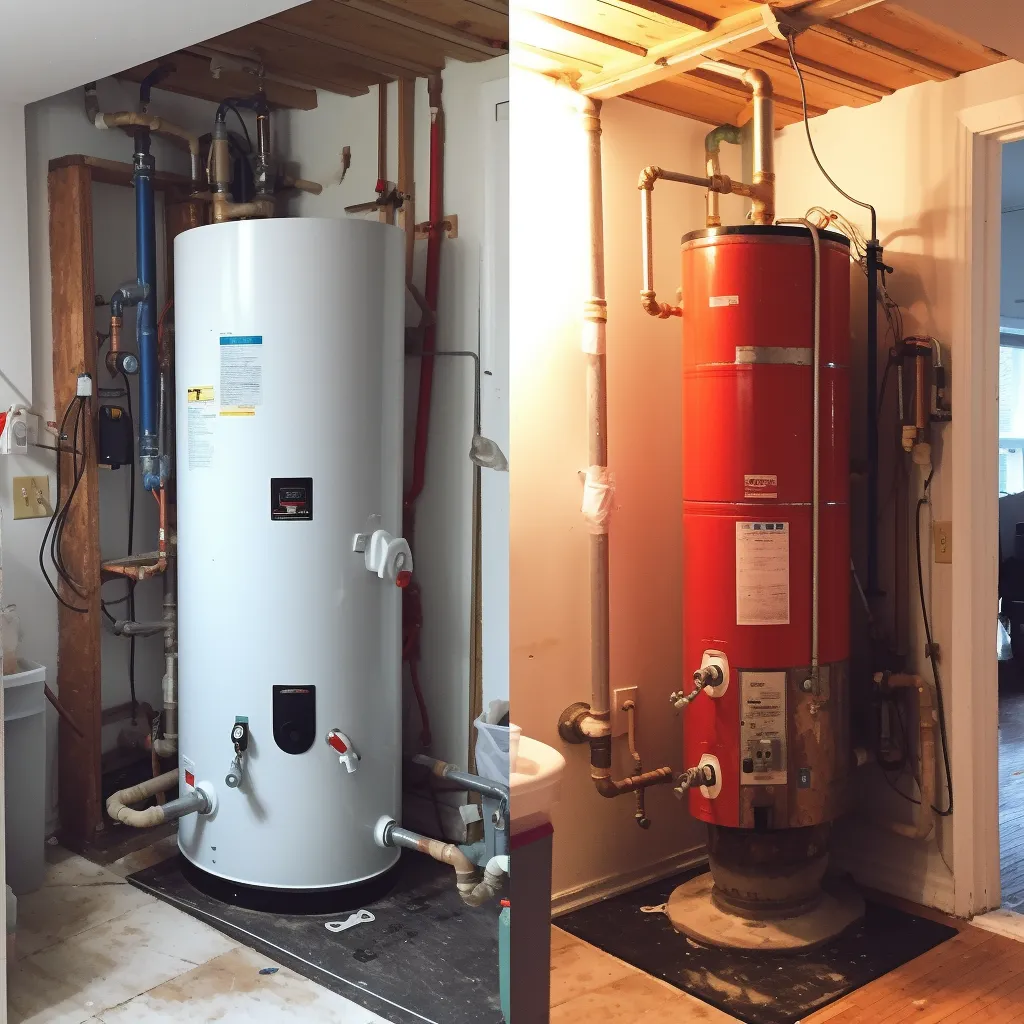
What are the cost and installation requirements for a tank water heater?
The cost of a tank water heater will depend on the size and type you choose. Generally, these heaters range from $500-$2,000 or more depending on the model and features. Installation costs can vary but tend to be around $1,000-$1,500 depending on your home’s plumbing system and local labor rates. Tank water heaters require a dedicated electrical circuit and an adequate gas line supply, so it’s important to make sure your home is properly equipped for installation before you purchase one. Additionally, the size of your tank will need to be determined based on the number of people living in your home and their hot water usage habits.
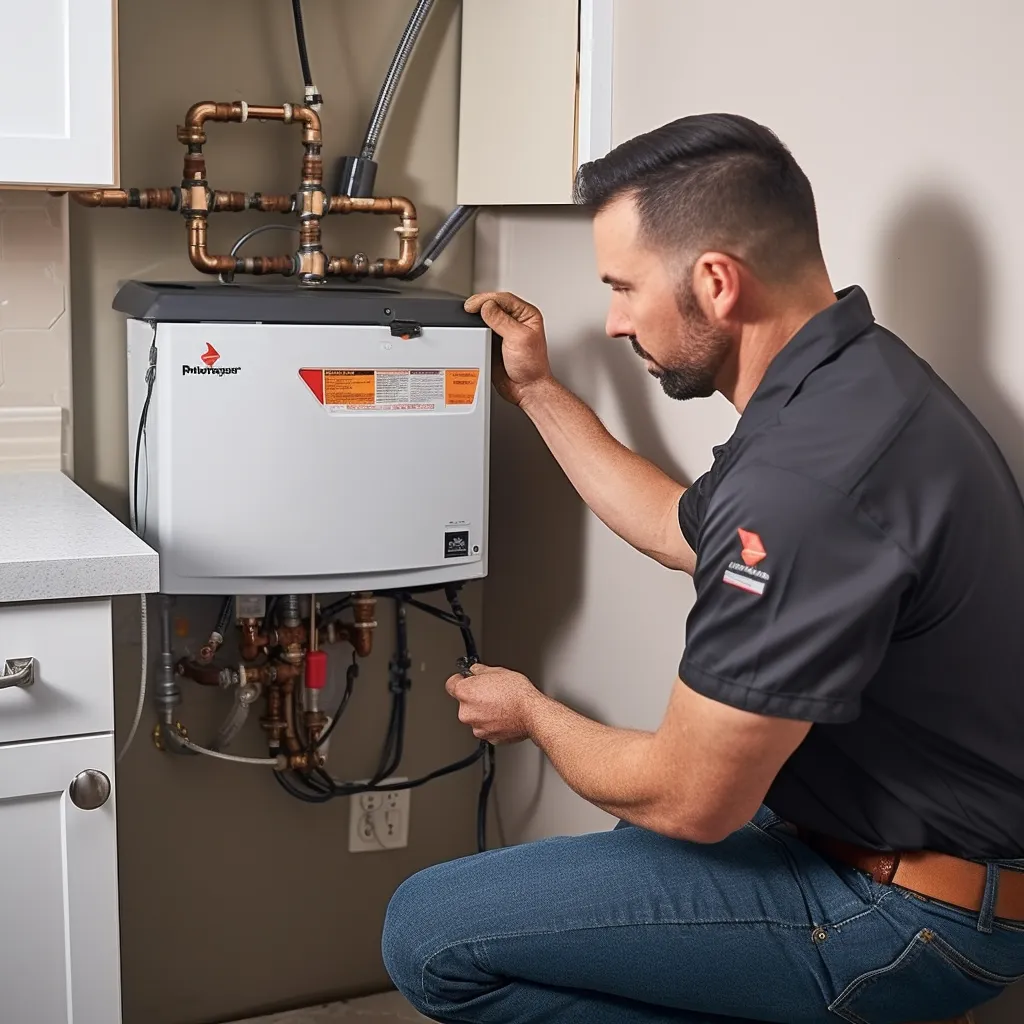
What are the cost and installation requirements for a tankless water heater?
Tankless water heaters tend to be more expensive than traditional tank models, with prices ranging from $1,000 to upwards of $3,000. Installation costs can range from $500-$2,000 depending on your home's plumbing system and local labor rates. Since tankless water heaters don't have a storage tank, they require a very large gas line to supply enough fuel for hot water on demand. These systems also need an electrical outlet to power their electronic components. As such, it's important to make sure your home is properly equipped before you purchase a tankless water heater. Finally, the size of the unit should be determined based on your household’s hot water needs.

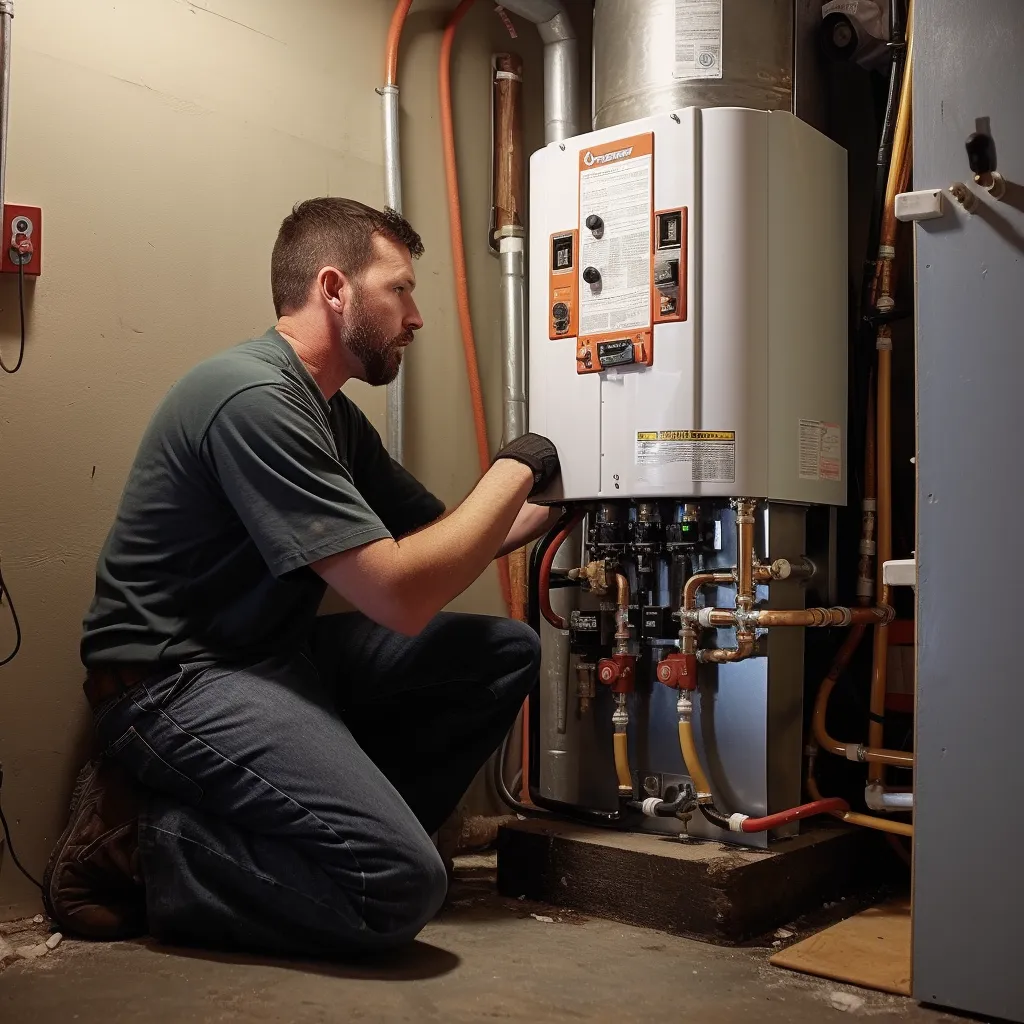
What are common maintenance issues with a storage tank water heater?
Storage tank water heaters come with a number of common maintenance issues:
Leaking tank: A leaking tank can lead to water damage and be expensive to repair.
Corrosion: Corroded tanks or components can reduce the efficiency of your system and require costly repairs.
Buildup of sediment: Sediment buildup in the tank can decrease its heating efficiency, as well as cause clogs and damage to plumbing fixtures.
Improper installation: If a tank water heater isn’t installed properly, it can lead to safety hazards such as gas leaks and electrical shorts.
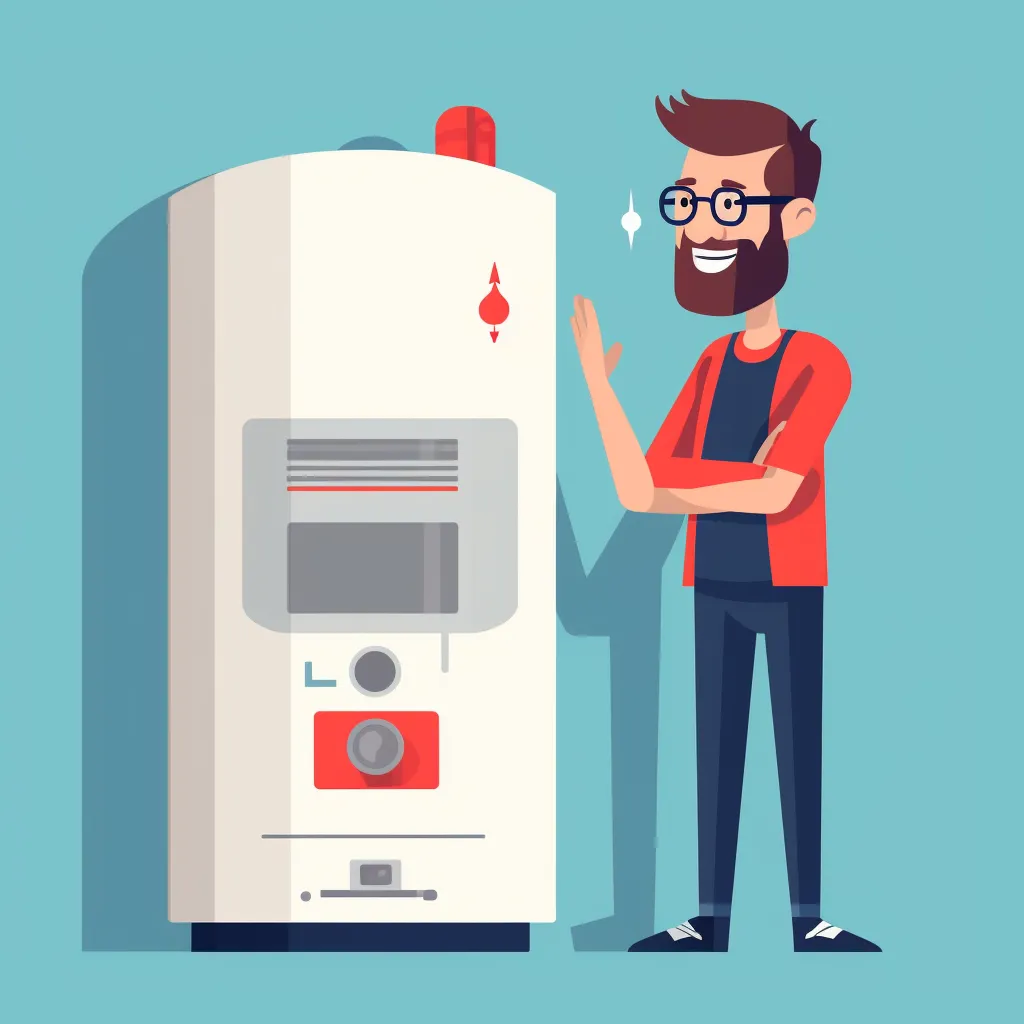
What are common maintenance issues with a tankless water heater.
Tankless water heaters are not impervious to maintenance issues:
Clogs: Like tank water heaters, tankless systems can develop sediment clogs that reduce efficiency and lead to damage.
Scale buildup: Hard water can cause scale buildup inside the heater, reducing its performance and lifespan.
Electrical problems: Tankless water heaters typically require more electricity than traditional models, so it’s important to make sure your home is equipped with an adequate power supply.
Gas line issues: Since tankless systems require a larger gas line than traditional models, it’s important to ensure that the connection is secure and free of leaks.

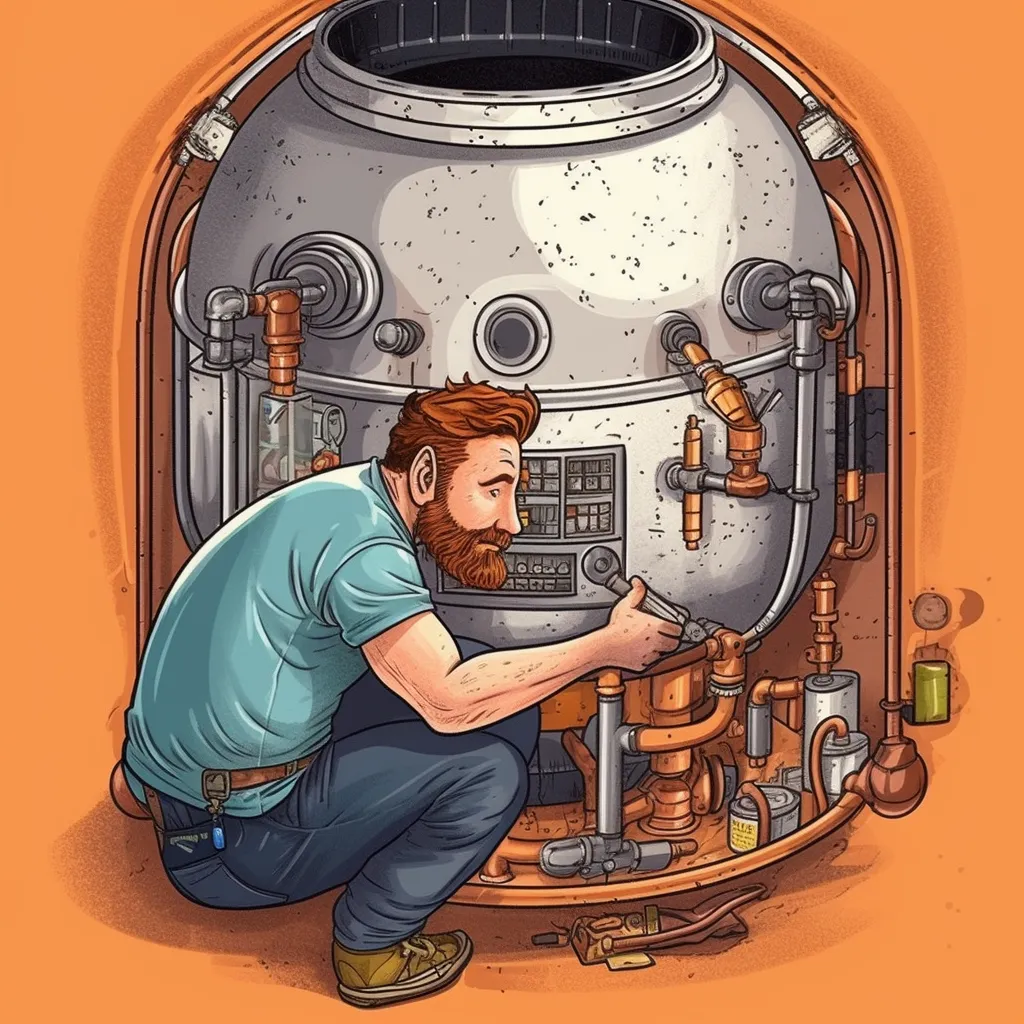
How long do tank water heaters last?
If you're wondering how long a tank water heater will last before it needs to be replaced, the answer isn't straightforward. On average, a tank water heater can last anywhere from 8 to 12 years. However, several factors can impact the lifespan of your water heater, including the quality of the unit, the frequency of use, and whether or not it's been properly maintained. Signs that your tank water heater might be nearing the end of its life include rust-colored water, strange noises, leaks, and a decline in water temperature. If you suspect that your water heater is on its last legs, it's best to consult a professional for advice on your options.
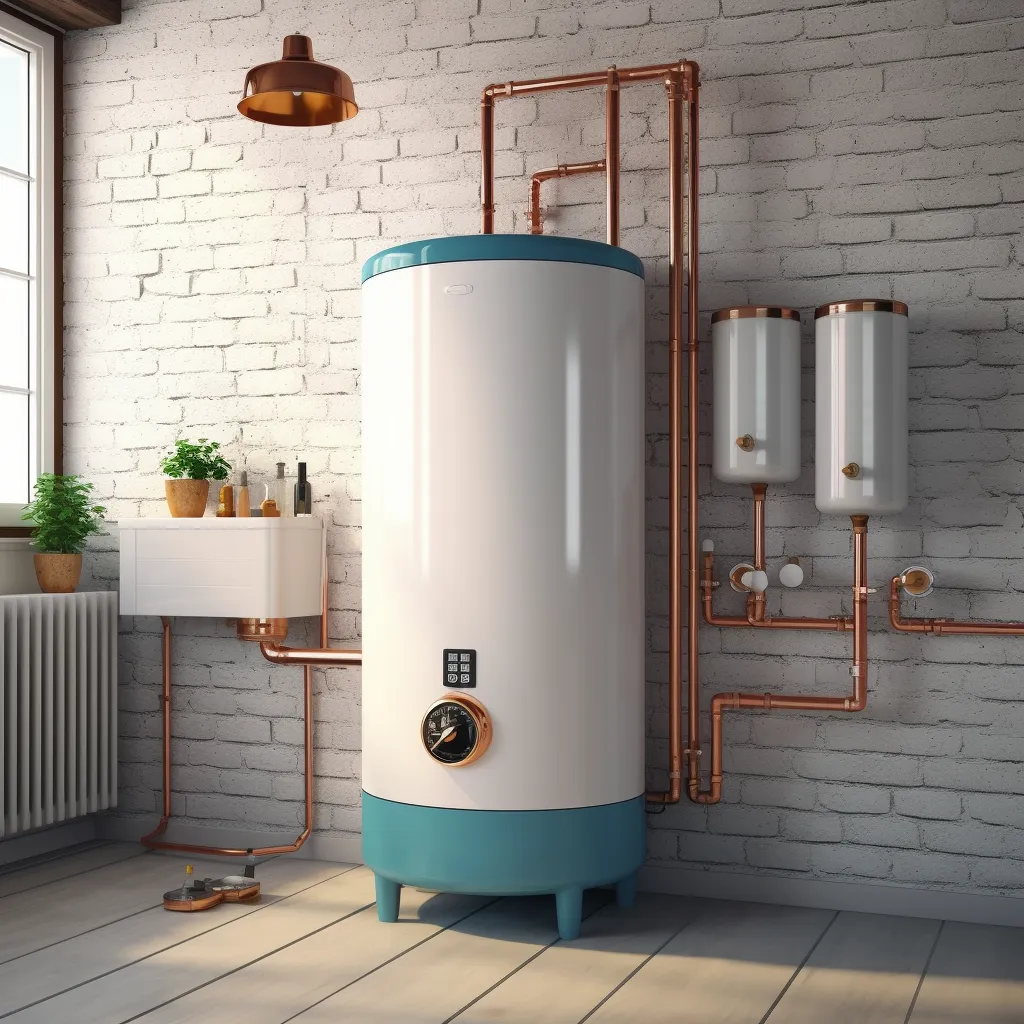
How long do tankless water heaters last?
Tankless water heaters are built to last longer than storage tank water heaters. On average, they can last between 15 and 20 years with proper maintenance and use. With the growing demand for green technology, tankless water heaters may continue to evolve and last even longer in the future. Investing in a tankless water heater not only promises immediate benefits but can also provide long-term savings and peace of mind.

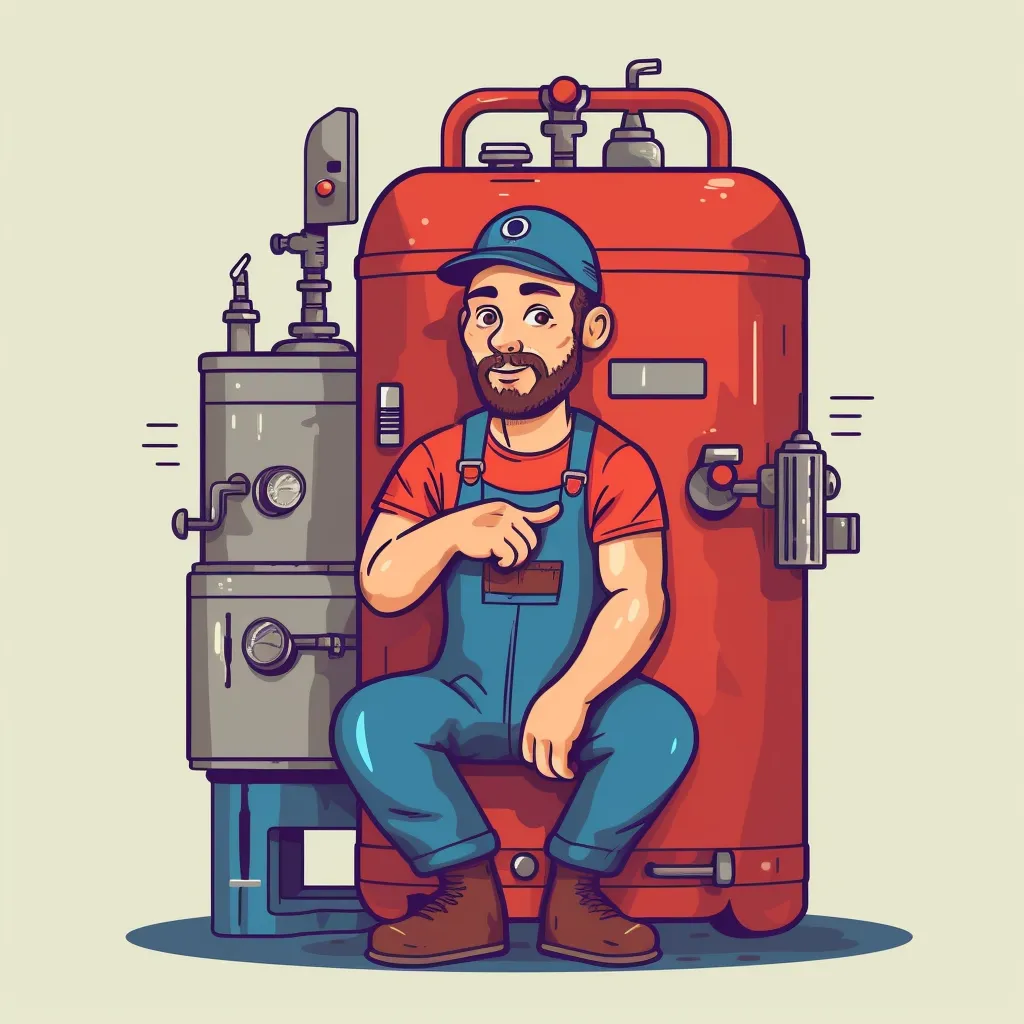
Gas vs electric water heaters
When it comes to picking a water heater for your home, one of the biggest questions you may have is whether to go with gas or electric. Both have their own set of advantages and disadvantages that may sway your decision. Gas water heaters tend to have lower operating costs and heat water more quickly, but require a gas line hookup and regular maintenance. On the other hand, electric water heaters are easier to install and maintain, but their operating costs can be higher and they may take longer to heat up water. Ultimately, the choice between gas and electric water heaters will depend on your individual needs and preferences.
How to decide if a tankless or a tank water heater is right for you
Before deciding if a tankless or tank water heater is right for you, there are several factors to consider:
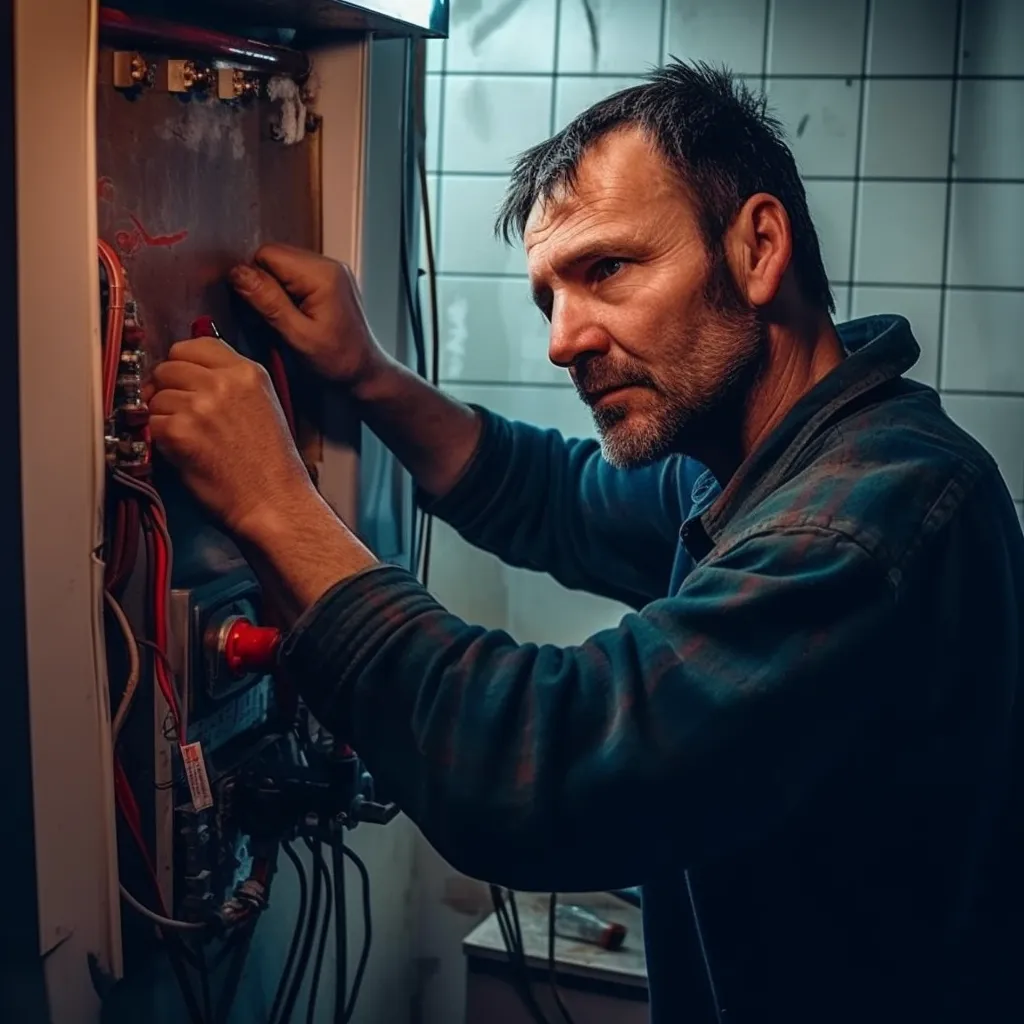
Your budget: Tankless water heaters can be more expensive to purchase and install than tank models, so it’s important to factor in any additional costs.
Your usage needs: If you’re looking for an endless supply of hot water, a tankless model may be your best bet, as it can provide an unlimited amount of hot water on demand. Tank models, while still efficient, may struggle to keep up with high usage.
The energy efficiency of each model: Both tank and tankless water heaters come in different energy-efficient models, so it’s important to compare their respective energy ratings.
The climate where you live: Tankless systems are designed for climates that experience extreme temperatures, while tanks are better suited for milder climates.
Space: Tankless water heaters take up far less space than their tank counterparts, making them ideal for small spaces..

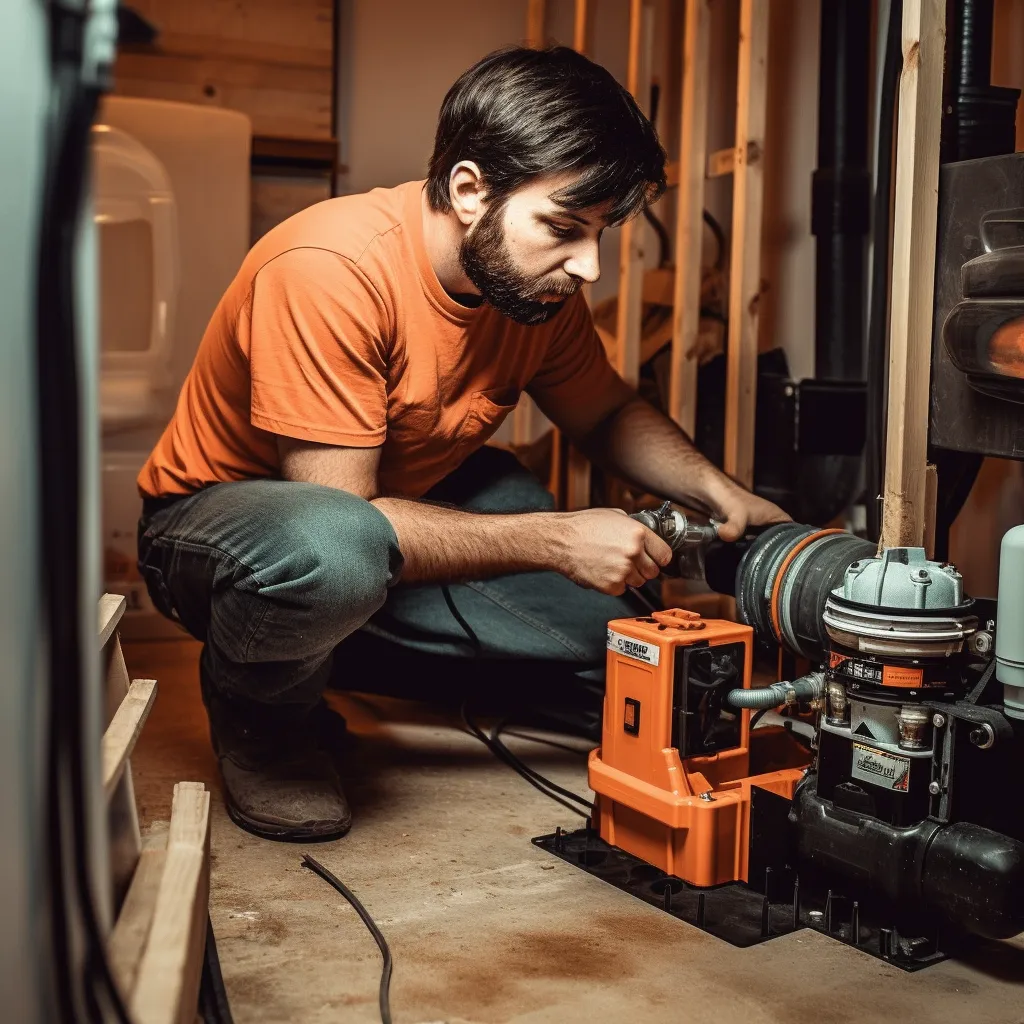
Why is it important to hire a licensed professional to install a new water heater?
Installing a new water heater can be challenging, especially if you lack the necessary skills and knowledge. It is essential to hire a licensed professional to perform this task because they have the required experience and training to ensure that everything is done correctly. A licensed professional can also advise you on the type and size of water heater that will meet your needs and comply with local building codes. They also understand the risks associated with the installation and have the necessary safety measures to protect themselves and your property. Hiring a licensed plumber gives you peace of mind, knowing that the installation was done professionally, and your home is safe from any potential damage or safety hazards. Remember, a water heater is a vital component of your home, and you should never compromise on quality when it comes to its installation.

Be sure to research tankless vs tank water heaters
Overall, both tank and tankless water heaters can be a great option for your home, depending on your needs, budget, and installation requirements. Take into consideration all of the factors above before making a decision to get the right water heater for you.
The right water heater can make a big difference in your home. Not only will it save you money on energy costs, but it will also provide you with reliable and hot water when you need it most. Whether you choose a tank or tankless system, be sure to research the various types of units available, as well as their energy efficiency ratings, so that you can make an informed decision.
Good luck!

Contact Us
